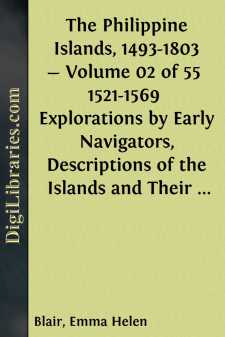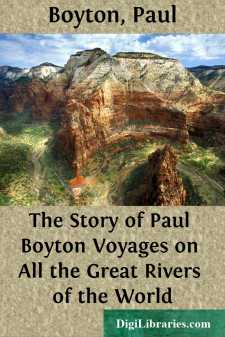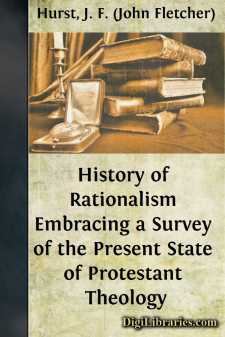History
- Africa 30
- Americas (North Central South West Indies) 50
- Ancient 68
- Asia 58
- Australia & New Zealand 8
- Canada 41
- Caribbean & West Indies 1
- Civilization 20
- Eastern Europe 12
- Europe 310
- Expeditions & Discoveries 60
- General 77
- Historical Geography 1
- Jewish 9
- Latin America 3
- Medieval 8
- Middle East 13
- Military 248
- Revolutionary 8
- Study & Teaching 5
- United States 353
- Western Europe 56
- World 13
History Books
Sort by:
by:
Edgar Saltus
THAT WOMAN When the murder was done and the heralds shouted through the thick streets the passing of Caesar, it was the passing of the republic they announced, the foundation of Imperial Rome. There was a hush, then a riot which frightened a senate that frightened the world. Caesar was adored. A man who could give millions away and sup on dry bread was apt to conquer, not provinces alone, but hearts....
more...
by:
Thomas Carlyle
Chapter I.—PRELIMINARIES TO A FOURTH CAMPAIGN. The posting of the Five Armies this Winter—Five of them in Germany, not counting the Russians, who have vanished to Cimmeria over the horizon, for their months of rest—is something wonderful, and strikes the picturesque imagination. Such a Chain of Posts, for length, if for nothing else! From the centre of Bohemia eastward, Daun's Austrians are...
more...
by:
Emma Helen Blair
Expedition of GarcÐÑa de Loaisa 1525-26 [These documents are all contained in Navarrete's Col. de viages, tomo v, being part of the appendix of that volume (pp. 193-439). They are here summarized in even briefer form than were the documents concerning the voyage of Magalhães, indicating sources rather than attempting a full presentation of the subject. Navarrete precedes these documents...
more...
There is perhaps no subject of greater interest, nor one which awakens more sympathy, than that of the Leper; it affords a most curious, though painful topic of enquiry, particularly in the present day, when so much has been said and written, as to the probability and possibility of the loathsome scourge again obtaining a hold in this, our own country. Much confusion and ignorance exists, as to what...
more...
by:
E. Gordon Browne
CHAPTER I: A Look Back In the old legend of Rip Van Winkle with which the American writer Washington Irving has made us so familiar, the ne'er-do-weel Rip wanders off into the Kaatskill Mountains with his dog and gun in order to escape from his wife's scolding tongue. Here he meets the spectre crew of Captain Hudson, and, after partaking of their hospitality, falls into a deep sleep which...
more...
by:
Paul Boyton
CHAPTER I. One bright day in July, 1858, two women carrying well filled market baskets, were crossing the old Hand Street bridge that spans the Alleghany River between Pittsburgh and Alleghany City, Penn. "Oh, Mrs. Boyton, do look at that child in the middle of the river paddling around on a board." "Well," said the one addressed as Mrs. Boyton, "I'm glad it is none of mine. My...
more...
by:
Richard Hakluyt
Richard Hakluyt, notwithstanding the Dutch look of his name, was of a good British stock, from Wales or the Welsh borders. At the beginning of the fourteenth century an ancestor of his, Hugo Hakelute, sat in Parliament as member for Leominster. Richard Hakluyt, born about five years before the accession of Queen Elizabeth, was a boy at Westminster School, when visits to a cousin in the Middle Temple,...
more...
by:
Francis Parkman
The occupation by France of the lower Mississippi gave a strong impulse to the exploration of the West, by supplying a base for discovery, stimulating enterprise by the longing to find gold mines, open trade with New Mexico, and get a fast hold on the countries beyond the Mississippi in anticipation of Spain; and to these motives was soon added the hope of finding an overland way to the Pacific. It was...
more...
by:
Barney Stone
Dere Julie, Well, hear I am in camp after being "rough-housed on the rattlers" for 1 day and 2 nites; I was so shook-up that I'm like a loose button on an overcoat—no wheres in particular. The most vivid impression in my bean is our interview in the hall-way of your flat the night (or was it morning) when we bid each other a fond fare-thee-well. Never will I forget them tender and loving...
more...
PREFACE. There were no prefatory remarks to the first and second editions of the following work. It was thought, when the printer made his final call for copy, that a preface might be written with more propriety if the public should indicate sufficient interest in the book to make its improvement and enlargement necessary. That interest, owing to the theme rather than the treatment, has not been...
more...











